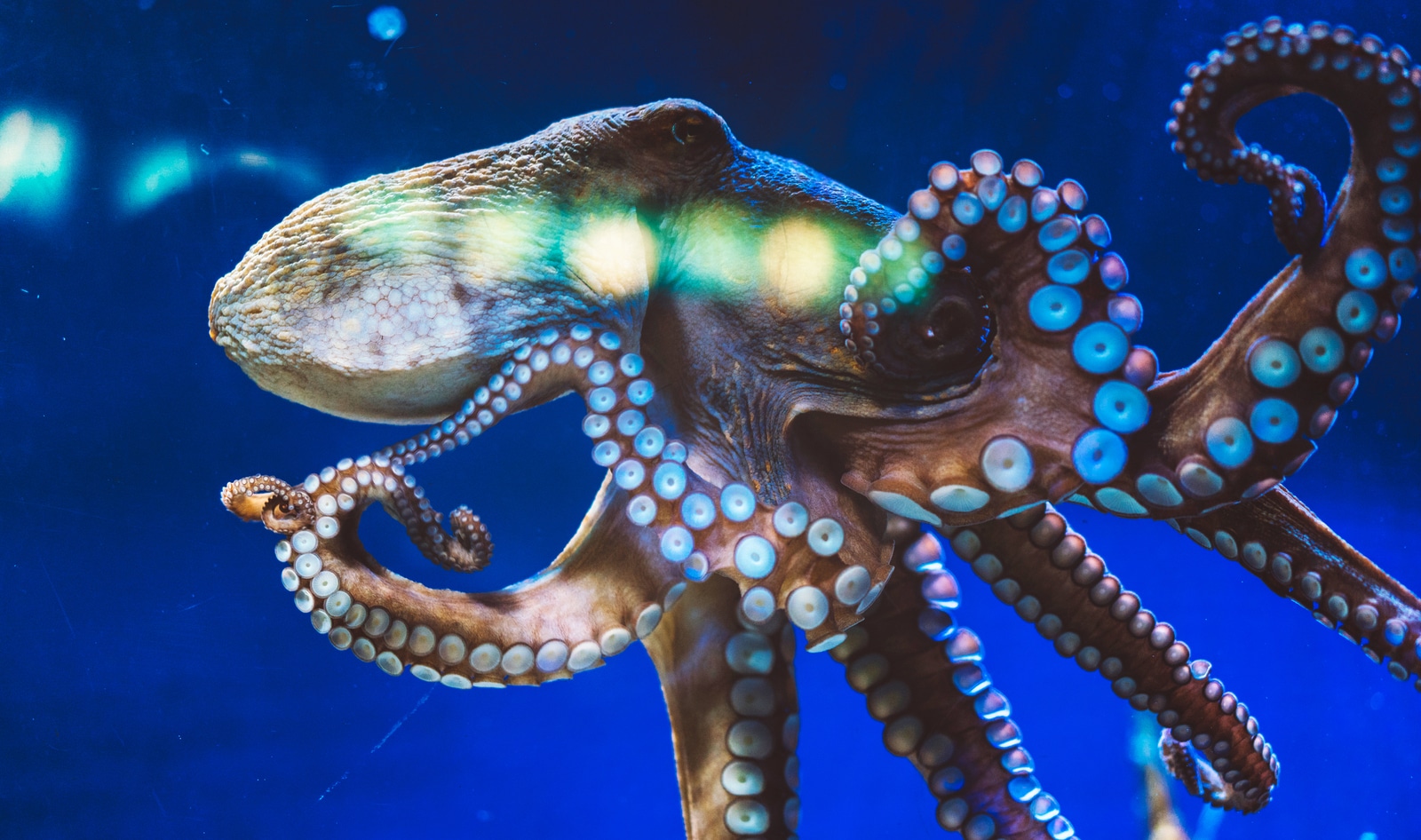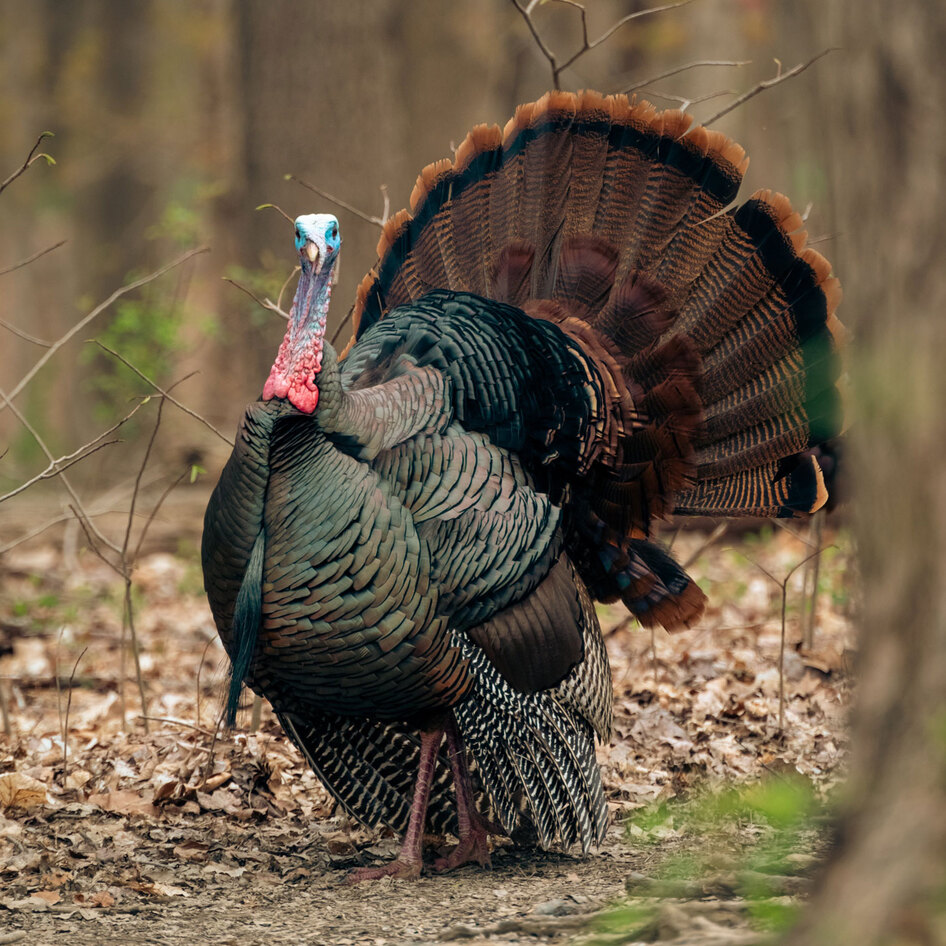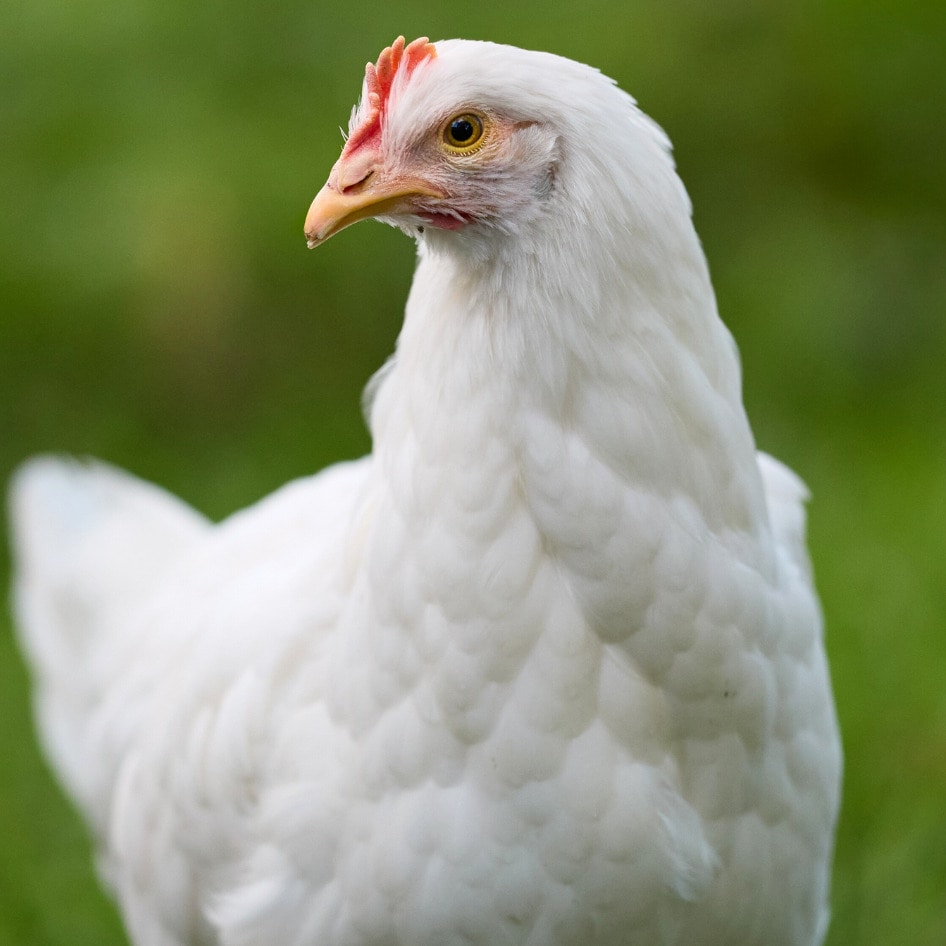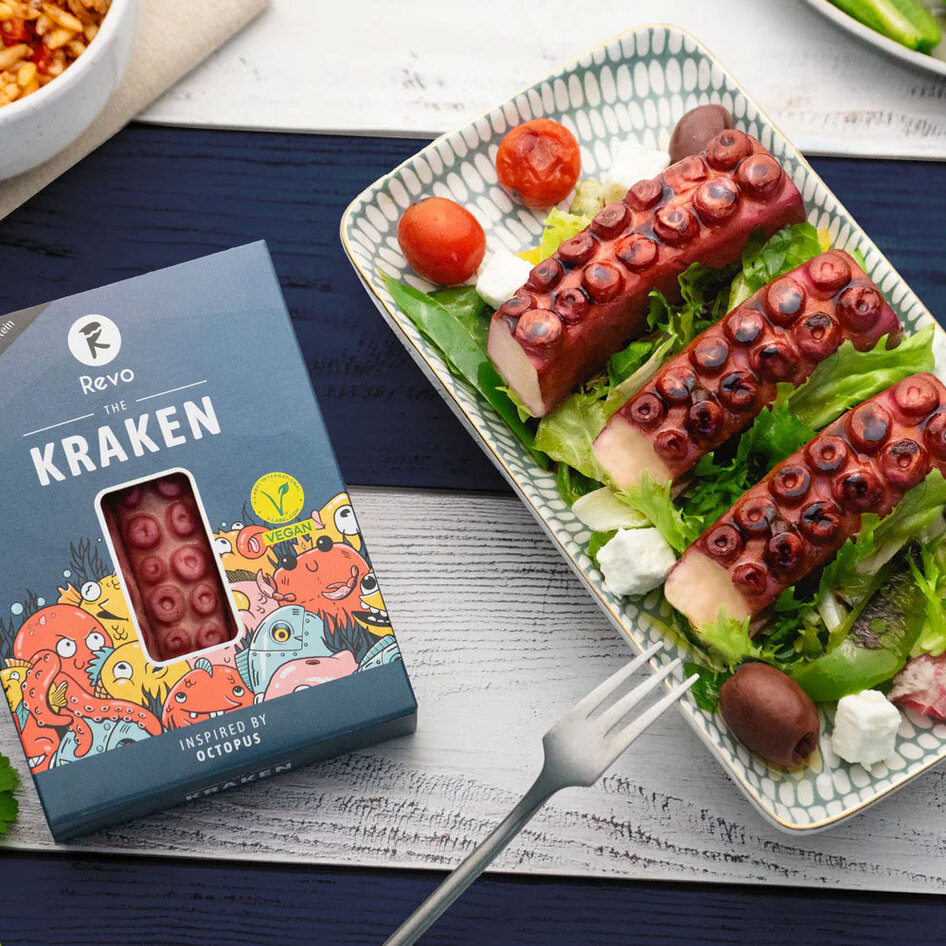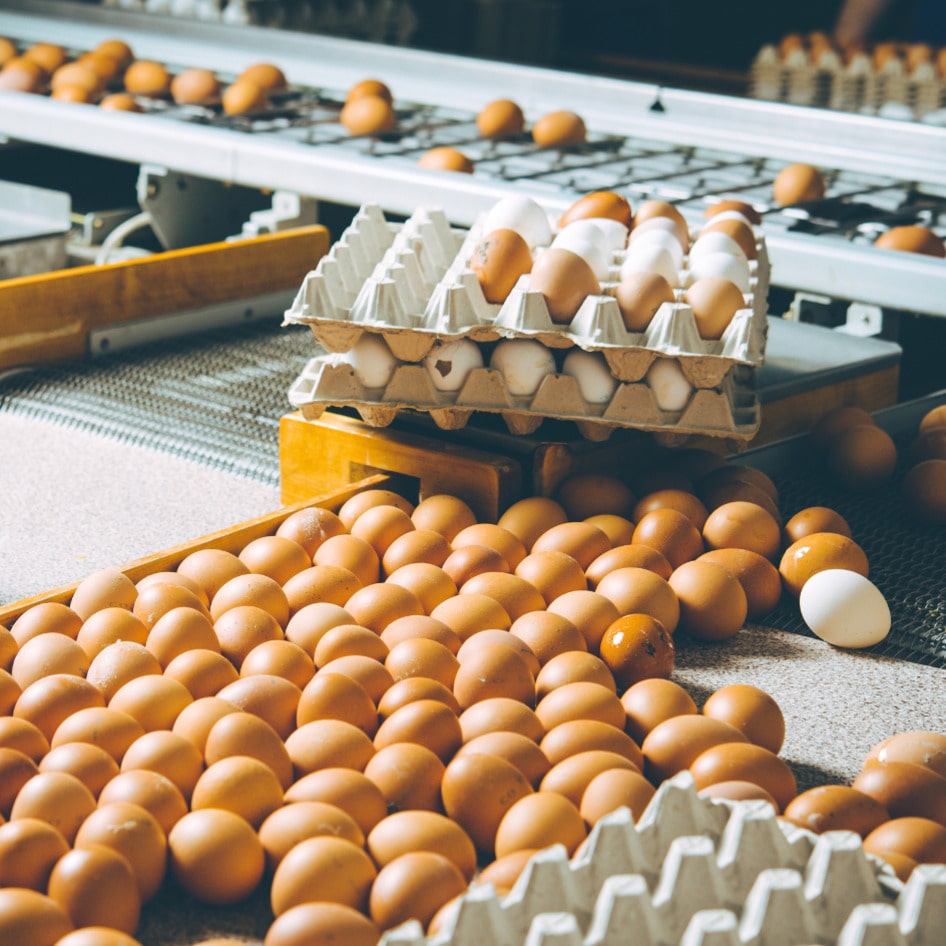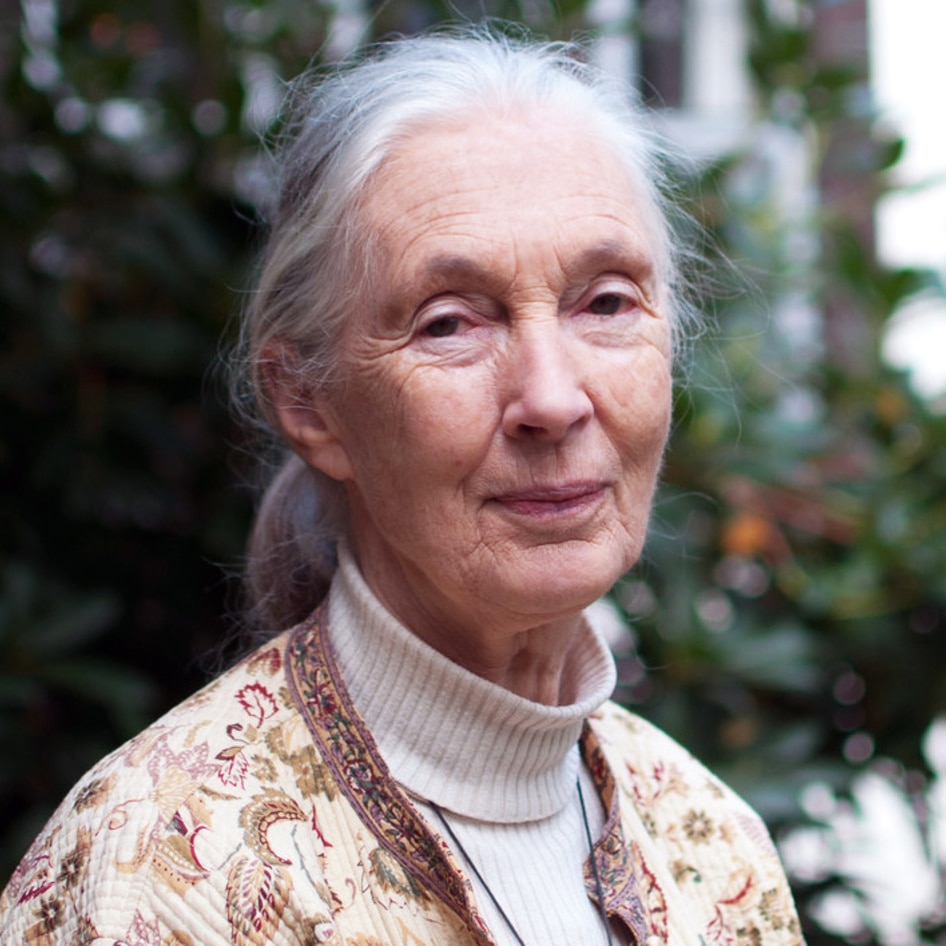Every time an octopus makes a brave escape from an aquarium through a tiny hole or by using tools, the world gasps at how intelligent these ocean creatures really are. And our emotional connection to them was further fortified by the 2020 documentary My Octopus Teacher. Here, viewers watched filmmaker Craig Foster develop a deep bond with an octopus who lived in a South African kelp forest.
In the Academy Award-winning film, Foster learned from the intelligent creature as she weathered life’s ups and downs, including learning how to better survive after a shark attack. Her natural death was a moment of deep sadness but also taught Foster and viewers alike about the wonder of life beneath the sea.
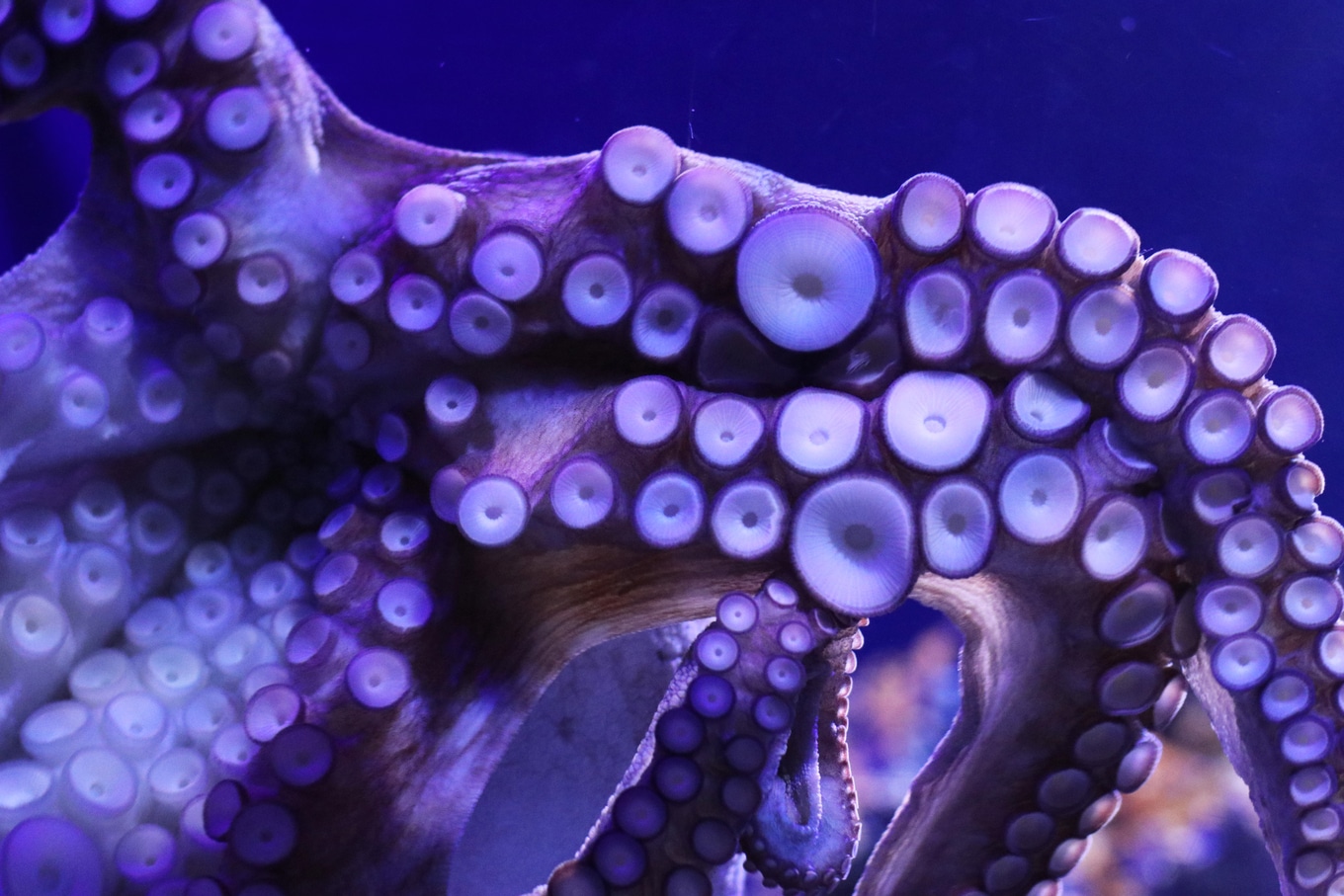 Unsplash
Unsplash
In 2021, the United Kingdom granted octopuses—along with lobsters, crabs, and other sea creatures—new protections under its Animal Welfare (Sentience) Bill after a government-commissioned report confirmed that these animals are sentient, intelligent beings.
“The Animal Welfare Sentience Bill provides a crucial assurance that animal well being is rightly considered when developing new laws,” Animal Welfare Minister Lord Zac Goldsmith said in a statement at the time. “The science is now clear that decapods and cephalopods can feel pain and therefore it is only right they are covered by this vital piece of legislation.”
But have we learned enough about and from octopuses to protect them from the cruelty of factory farming? This is the challenge posed by Eurogroup For Animals (EFA) and Compassion In World Farming’s (CWF) new report as seafood company Nueva Pescanova attempt to finalize plans for the world’s first octopus factory farm in Las Palmas on Spain’s Gran Canaria island.
“Considering what we do know about how complex and highly intelligent octopuses are and much of what they need to thrive, it’s absolutely inexcusable to even consider farming them at an industrial scale,” Katie Nolan, Campaigner for animal-rights group In Defense of Animals, said in a statement.
“We should be focused instead on investing in the creation of a truly sustainable food system that doesn’t cause further animal suffering, or harm human health and the environment.”
Are octopus factory farms a bad idea?
Nueva Pescanova recently submitted plans to the General Directorate of Fishing of the Government of the Canary Islands for its octopus factory farm, where it plans to farm up to one million of the sea creatures annually.
The plans outline 40 to 60 fattening tanks, 550 to 650 settlement tanks, 90 to 100 tanks for newly hatched octopuses, and 22 to 36 tanks for breeding. Nueva Pescanova—a resource-intensive land-based operation—has yet to receive all of its needed permits to operate and is awaiting approvals from Spain’s Environmental Impact Assessment.
In the meantime, the EFA and CWF have released their joint report “Uncovering the Horrific Reality of Octopus Farming,” to spotlight that factory farming octopuses in this way poses disastrous consequences for the intelligent animals.
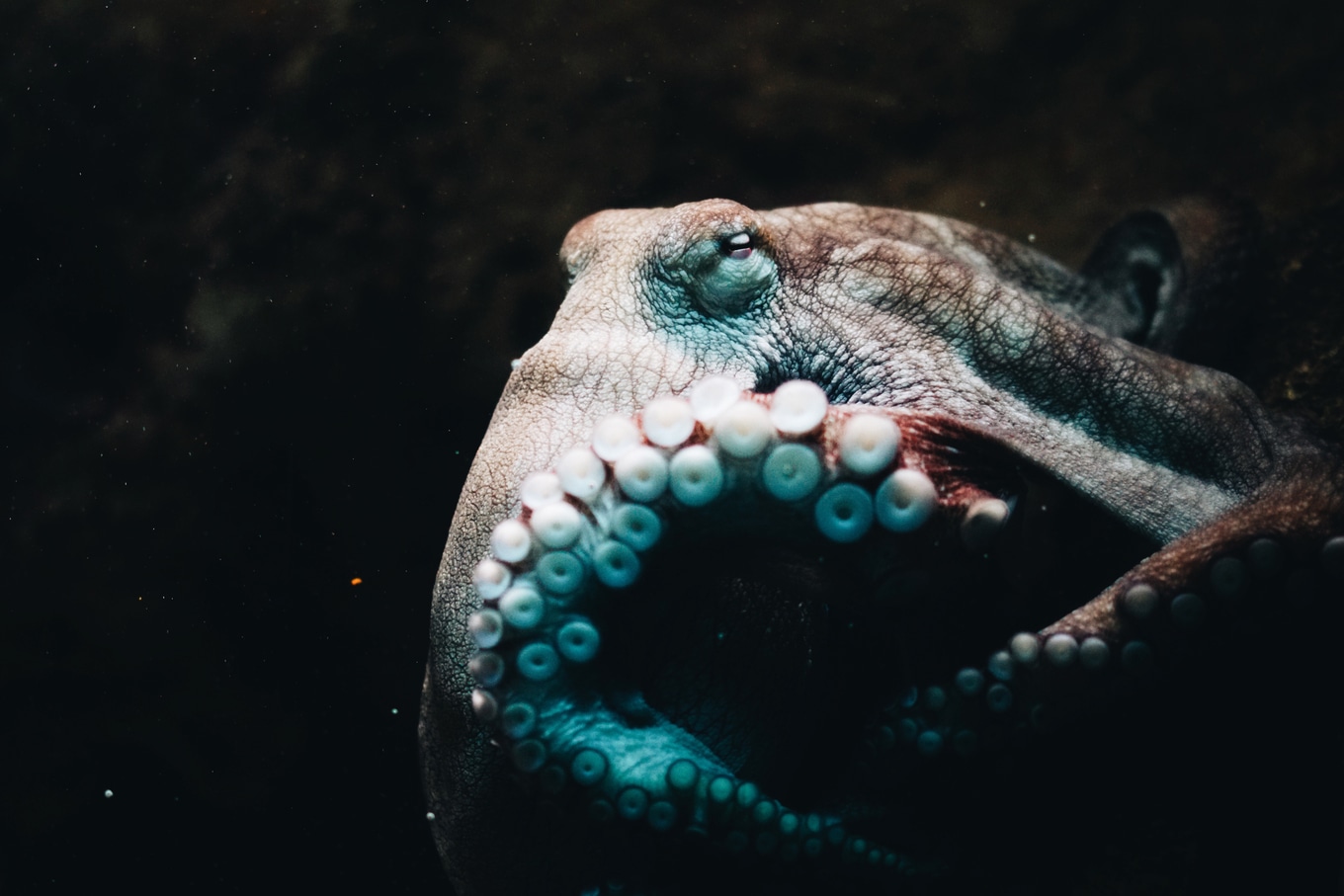 Unsplash
Unsplash
Since the animals are solitary and territorial, farming them at these densities creates conditions for aggression and cannibalism. Nueva Pescanova acknowledges this—revealing that it expects a mortality rate of 10 to 15 percent—and plans to separate the animals by sex and size as a solution.
The factory farm also plans to expose female octopuses to 24-hour periods of light to spur spawning, even though the animals avoid light as a defense mechanism against daytime predators. Nueva Pescanova also acknowledges that this is a stressor for octopuses.
The carnivorous animals will be fed fishmeal and fish oil, food sources that are unsustainable and environmentally risky. When octopuses reach slaughter weight, Nueva Pescanova plans to submerge them into an ice slurry to kill them—which has been scientifically proven to be inhumane.
Further, the environmental impact of the waste associated with factory farming octopuses in this way has yet to be assessed, nor have assessments been properly done of the potential diseases that can emerge from a farm like Nueva Pescanova’s.
“Furthermore, these aquaculture environments are entirely artificial,” the report states. “This contradicts the welfare needs of highly intelligent animals such as octopuses who require varied stimuli within their habitats.”
In addition to EFA, CWF, and IDA, a growing number of members of the scientific community have vehemently opposed the factory farming of octopuses.
Outside of Spain, the United States and Japan are also looking to develop octopus factory farms. However, Hawaii’s Kanaloa Octopus Farm halted operations for not having proper permits.
The call to stop octopus factory farms
The new report builds upon existing research around the intelligence of octopuses and presents the animal welfare disaster of factory farming them. However, learning that certain animals—such as pigs, cows, chickens, and fish—are sentient and highly intelligent has not been enough to stop their exploitation for food in factory farms in the past.
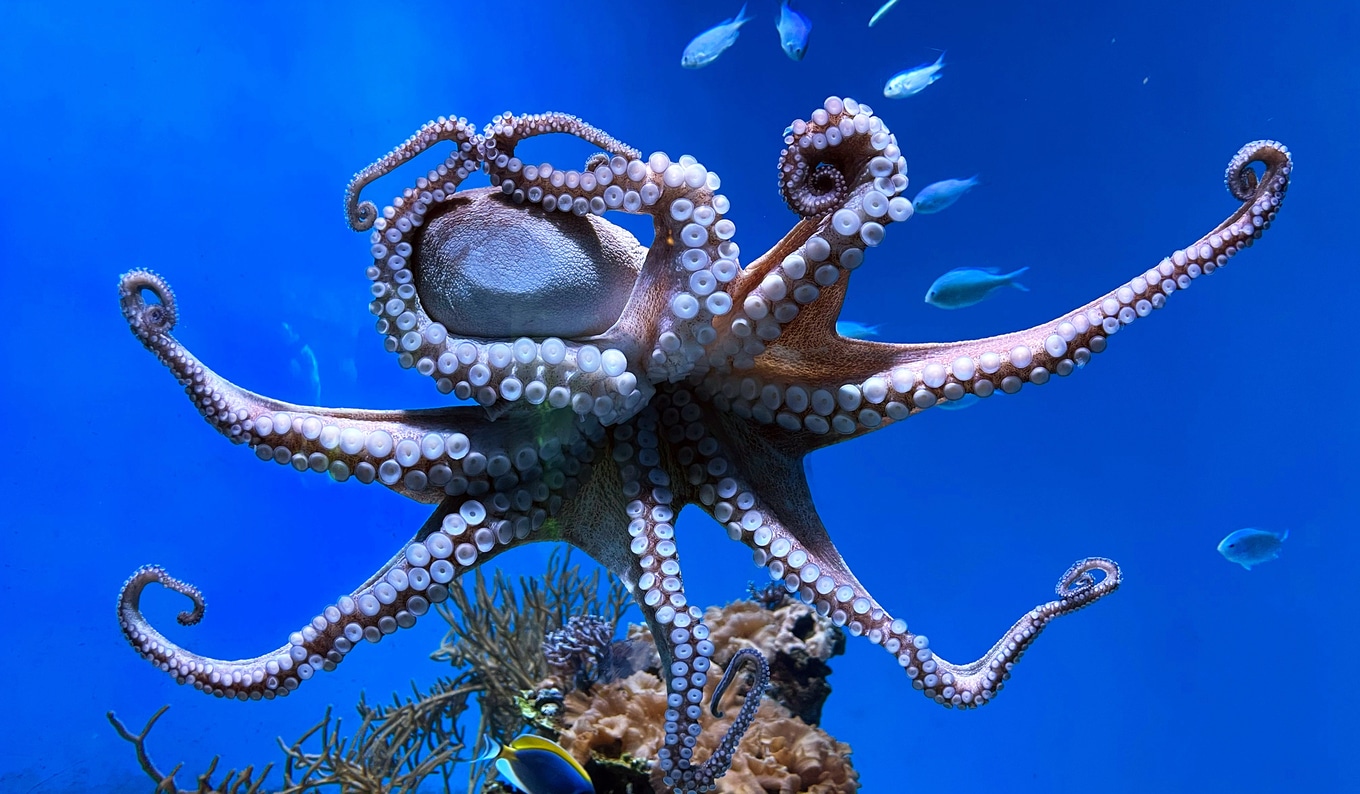 Pexels
Pexels
EFA CEO Reineke Hameleers is hoping we can save octopuses from the same fate as other food animals before plans for their suffering are finalized.
“Blindly establishing a new farming system without consideration of the ethical and environmental implications is a step in all the wrong directions,” Hameleers said in a statement.
“We’re calling on the EU to include a ban on octopus farming before it ever sees the light of day, in order to avoid plunging more sentient beings into a living hell,” Hameleers said.
Currently, more than 20,000 people have supported IDA’s campaign to demand that Spanish authorities halt Nueva Pescanova’s octopus factory farm.
For the latest vegan news, read:
JUMP TO ... Latest News | Recipes | Guides | Health | Subscribe

